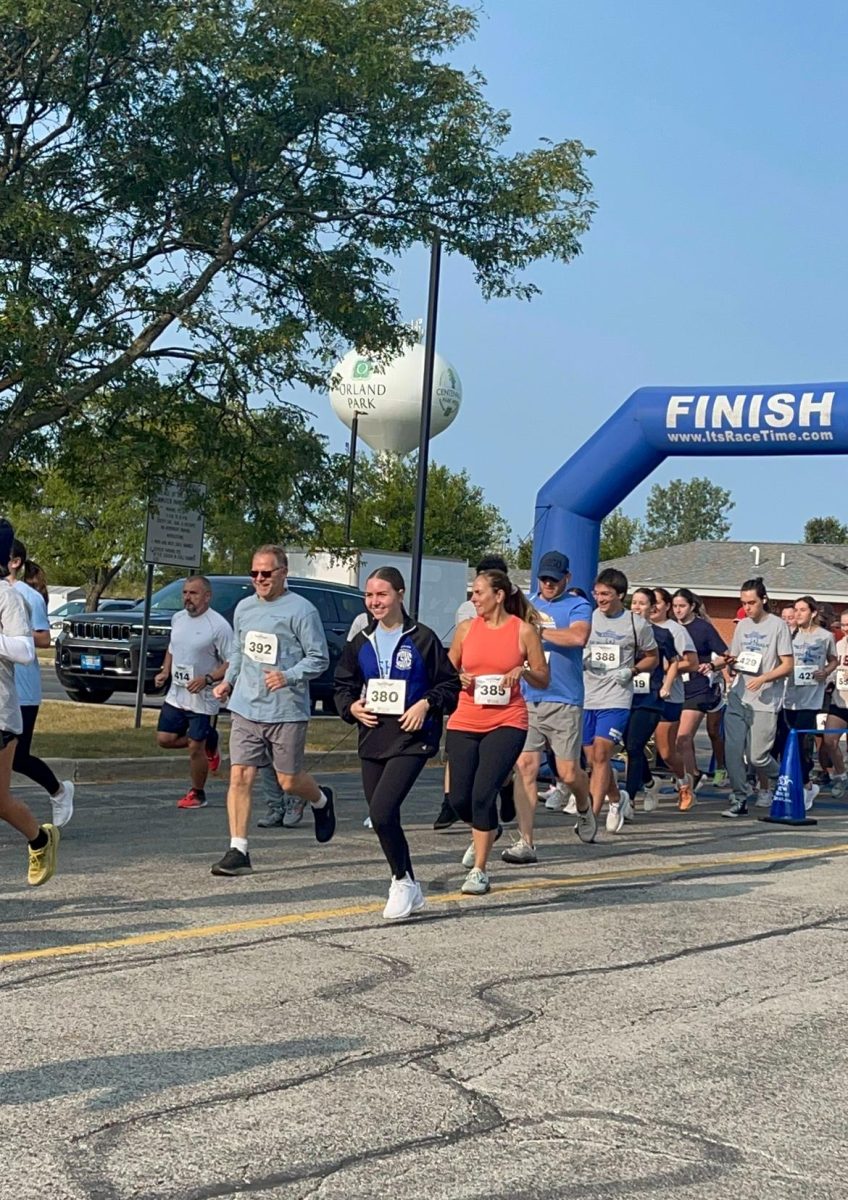If you were to walk down the hallways and listen to authentic student conversations about after-school activities, it’s quite likely that you’ll hear someone talking about going to The Edge, Lifetime, or staying after school to go to the weight room. Over time, it seems that students have changed their perspective on working out and the culture that comes with it; the number of people taking the responsibility of their health into their hands has only been growing each year.
Working out has always been an important part of many people’s lives, and this includes high schoolers as well. Physical Education started in the mid-19th century here in the United States, and it was created as a means of physically preparing adolescents in the case of a war. Similarly to the Physical Education we know from history in places such as Sparta or Athens in Greece, the main point of having students and adolescents become more physically active was to prepare future generations of strong armies for potential wars.
This was true going back just a few decades ago here in the United States. However, today, teens and high schoolers have a different attitude towards working out and body positivity, one that favors their own well-being and strength — not as a result of forced mandates.
Walking into the weight room today, you’ll notice a variety of students there for different purposes. There are of course student athletes using the weight room as a means of strength and endurance training for their sport.
Most of the students that work out after school, however, will say that they’re not there for sports — that they are there for themselves, working out for their own health and wellbeing.
Seniors Yanal Swaiss, Matthew Flaherty, and Wafiq Freihat all actively work out after school. Swaiss encourages gym newbies in their fitness quest, saying “just get started. Everyone was a beginner at once, and we all know that feeling of being uncomfortable or worrying about being judged, but the gym is a place of non-judgment or conformity, so all of us, if we see a beginner struggling, we’ll definitely help them out. It’s a place to grow. We all were there once so we know what it’s like.”

Freihat also reinforced the difficulties of beginning to work out consistently, but echoed the potential for personal growth. Freihat says a benefit of a workout regimen is “better discipline. You’re not gonna want to go and work out every day, but the habits it puts you in to do stuff you don’t want to do translates to school, work, and working out, and ultimately results in better confidence, drive, and ambition.”
Freihat also comments that, for him, “There’s also a religious aspect as well. Part of my religion is to be the best shape you can be, and it gets you into good habits, good discipline. You’re more likely to eat healthier than not, you’re more likely to help others than not, and there’s more good habits than bad.”
This new era of working out affects young women as well. On a national level, there has been a rise in the number of women and girls working out compared to as little as 10 years ago, and Sandburg has plenty of young women taking their health into their own hands as well.
One such student is Ellory Crnkovich. Crnkovich noted that her passion for fitness started long ago. “I’ve always been really active. I played team sports a lot as a kid, but I think I really started doing fitness and working out in about eighth grade, and then I really got passionate about it in my sophomore year. It helps me cope with a lot.”
Crnkovich continued, stating that “When I’m dealing with stress or anxiety, it feels really good just to get to the gym and put my music on and lift, or run, or work on something. It makes me really happy, and I go to the same gym as my dad, so it’s fun to work out with him and see him, and also see some of my friends and also work out. It just gives me something to do.”
For Crnkovich, the gym offered her the time and space to get healthy after a major injury. “I actually broke my leg freshman year, and that’s how my team sport career kind of ended, so being able to work out helps me get the exercise I need to stay healthy, even though I can’t play a sport anymore.”
When asked about whether or not working out has made a lasting impact on her life, Crnkovich said, “I think it has, mainly because it’s definitely helped me with my mental health. I’ve noticed that I have this nice outlet where I can come and put my stress and my anxiety, and I put it all into the gym. I’ve also noticed that I’ve become more healthy myself since I’ve started seriously working out. I’ve noticed a lot of positive changes in myself, in my mindset, and things like that, and I just really got to a point where I just enjoy going and working out. It’s just really changed my mindset a lot and my…understanding of fitness.”
Many people may claim that gym culture can sometimes be difficult for those not already used to it. Sometimes it might seem that gymgoers are unwelcoming, or the process may be daunting, but Crnkovich states “I think it depends on the gym. I’ve never had a negative experience, so to speak for myself I can say my gym culture has been really positive. I really like that I’m able to work out with my friends, that I’m able to work out with my dad. That’s really fun. He’s a big motivator for me. I’ve never really had an issue. Everyone was really nice and open, and no one judges you either which is really really nice, because there are times when I go in and I’m nervous to do something new, because I feel like people might judge me, but everyone’s always been super helpful.”
Working out and maintaining a healthy and active lifestyle doesn’t just affect your physical health, but your mental health as well, increasing self-esteem, preventing the development of mental health problems, and improving the quality of life for many people.
Studies have shown that participating in a sport or physical activity regularly helps to ease stress of day to day life, and it helps to boost confidence as well. Especially within a positive, non-judgmental environment that many of the students described at their gyms, young people have more opportunity than ever to take advantage. Hopefully, this trend of of work out positivity continue, inviting more people to come to the gym, so that more people can experience the benefits of an increasingly empowering gym culture.



